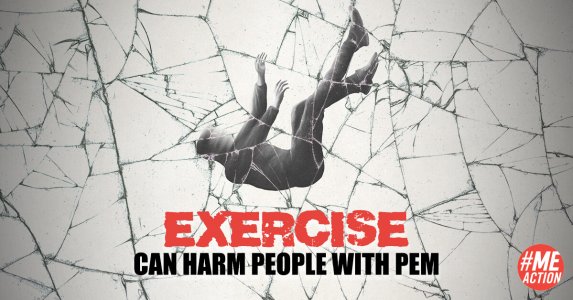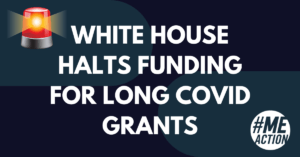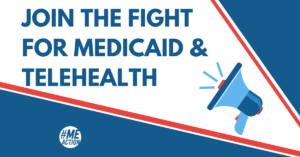Listen to the Article
Audio Player#MEAction has sent a followup letter to the National Institutes of Health RECOVER Initiative regarding its plans to conduct a clinical treatment trial of exercise therapy in people with Long COVID.
The breadth and volume of the objective evidence of an abnormal response to exercise in people with ME/CFS and post-exertional malaise (PEM) is distinct and robust. Given that up to half of those with Long COVID meet the diagnostic criteria for ME/CFS, and PEM is experienced by the majority of those with Long COVID, RECOVER cannot afford to ignore this evidence.
Too often, researchers who employ exercise interventions for rehabilitation lack awareness and understanding of the evidence found in years of ME/CFS research.
After receiving no response to our February 28th letter we know it is crucial to follow up and underscore our concerns about the safety and efficacy of this clinical trial. Thus far RECOVER has provided no information to the public about the justification for the study or how it will be designed.
Our core demand is that people with Long COVID who meet the criteria for ME/CFS and those with PEM must be excluded from this study in order to prevent them from potentially being harmed.
We submitted a summary of the evidence to RECOVER supporting that exercise interventions can be harmful to Long COVID participants who meet the criteria for ME/CFS or experience PEM.
Mary Dimmock recently compiled this draft list of ME/CFS studies to date that provides objective evidence of an abnormal response to exercise across multiple systems including the immune, neurological, and cardiovascular/autonomic systems, metabolism, and the microbiome. This evidence includes objective measures of impairment in exercise capacity that cannot be attributed to deconditioning.
NOTE: As a working draft, the list of studies may contain errors or omissions. If you identify any please email Mary Dimmock at medfeb@yahoo.com with the subject “Provocation studies.”
These findings should inform all aspects of study design for RECOVER’s planned clinical trial of exercise therapy for Long COVID. If this trial moves forward we need to know that:
- Long COVID participants who meet the diagnostic criteria for ME/CFS or who report PEM will be excluded from this study,
- Participants will be screened for PEM at the outset of the study and assessed for PEM after every exercise intervention using a validated instrument.
- PEM will be included in the study’s harms reporting and informed consent, and
- The study’s stated conclusions will be explicitly limited to the cohort studied and not generalized as appropriate for all Long COVID patients.
We continue to be appalled that RECOVER is wasting precious research dollars on a trial that is potentially harmful for the majority of people with Long COVID, instead of focusing on clinical trials and treatments that could make a real difference for both the Long COVID and ME communities.
We don’t just want RECOVER not to harm Long COVID research participants with ME/CFS and PEM. What we need is a real investment into researching treatments that can actually help them.






4 thoughts on “NIH Must Not Overlook Evidence of Exercise Harm”
So glad you are fighting for this.Thankyou
How can we send this message as well? It is so important, and numbers count!
Thank you, always, for your good work.
Hi Katie, If you’d like to contact the RECOVER Initiative about this issue you can email them at recover@nih.gov
Exercise also appears to be in treatment plans for Long COVID clinics.
Comments are closed.